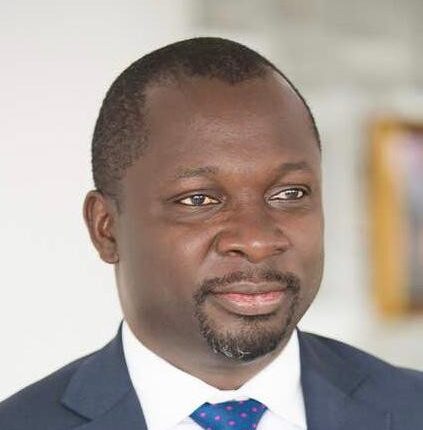Ghana’s lending environment is facing a crisis that cannot be attributed to banks alone.
This is the firm position of John Awuah, CEO of the Ghana Association of Banks (GAB), who argues that the country’s credit sector is collapsing under deep structural weaknesses.
Speaking on the state of Ghana’s lending regime, Mr. Awuah stressed that the persistent challenge of high lending rates is rooted in national systems that shape how financial information flows, how property is verified and how credit agreements are enforced.
According to him, focusing solely on banks will not provide the solution Ghanaians are looking for.
Comparison
Mr. Awuah pointed out that the interest rate discrepancies between Ghana and Côte d’Ivoire reveal the depth of the country’s internal problems.
He noted that several banks operating in Ghana also operate in Côte d’Ivoire, yet offer significantly lower interest rates in the latter.
He stated that, “Half of the banks operating in Ghana are also operating in Côte d’Ivoire. Talk of the Ecobanks, Access Bank and the likes. how is it that in Côte d’Ivoire, the same bank is able to lend at the rate we are talking about?”
“To him, this difference has little to do with risk management or banking discipline and everything to do with the structural environment in which financial institutions operate. It is a character of a country and the structural deficiencies that we have in this country,” he noted.
Undermining Lending Operations
The GAB CEO explained that multiple state institutions play a critical role in shaping the lending ecosystem, and many of these institutions are fraught with inefficiencies.
Processes at the Lands Commission, the court system and within the country’s credit culture were highlighted as major contributors to Ghana’s lending challenges.
These bottlenecks, he said, hinder banks from accurately verifying information, enforcing credit agreements and ensuring that loan transactions are grounded in reliable data.
Mr. Awuah was particularly critical of how slow and unreliable property verification processes can distort lending decisions.
The absence of a modern system that provides real-time access to ownership and encumbrance records makes collateral assessment difficult and risky. As a result, banks build these risks into their lending rates, driving the cost of credit even higher.
A Broken Credit Reporting System
One of the key issues Mr. Awuah highlighted is Ghana’s lack of a unified and comprehensive credit reporting system. He described the current setup as one that forces banks to rely heavily on verbal disclosures from loan applicants.
“If Mr Joseph Obeng approaches a bank to borrow, let us say ¢100,000, all the bank could do is say, Oh, where else do you have exposure? It is word of mouth. There is no mechanism for having a 360 view of the customer.” John Awuah said.
This gap, he said, gives borrowers room to hide critical information such as supplier credit, pending rent obligations and outstanding loans from other sources.
He added, “Whether he has a supplier’s credit, he will not disclose to the bank. Whether he has taken a loan from the landlord of the property where he rents, whether he is even in arrears, he will not disclose to the bank.”
The lack of transparency in borrower information creates situations where banks unknowingly finance obligations that have nothing to do with a business’s growth.
Awuah illustrated a scenario where a bank approves a loan with the expectation that the borrower will import goods from China to sell and repay the facility. Instead, the funds are diverted to settle old debts and make overdue payments.
“So the bank gives ¢100,000, thinking it is going to maybe bring goods from China to sell, make money and pay back the loan. Half of it goes to pay the supplier, another half goes to pay rent and salary in arrears. By the time you realise, what you funded is gone. Where is he going to get the money to pay you back?”
These patterns, he said, contribute significantly to rising loan defaults, undermining confidence in the lending system and prompting banks to adopt even more conservative lending practices.
Total Overhauling
For Mr. Awuah, reforming Ghana’s lending environment requires a national overhaul rather than criticism of banks. He insisted that the weaknesses lie in the systems that define financial interactions.
From information flow to property verification to the enforcement mechanisms within the courts, these interlinked problems are weighing down the entire credit ecosystem.
“The system that gives the bank a 360 view of the customer is non-existent,” he emphasised, calling for urgent modernization and coordination across state institutions.
Clearly, Ghana’s lending system is collapsing under its own weight due to longstanding structural inefficiencies. Addressing these challenges requires holistic reforms, not quick fixes or blame directed solely at banks.


Comments are closed.